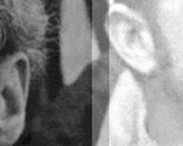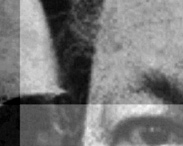|
Delta Foxtrot
Delta Foxtrot | Delta Foxtrot | Delta Foxtrot | Attention |
53 groups | 12369 12369 52145 52145 97936 97936 47174 47174 (........)
Over the course of several minutes, a mechanical female voice reads
monotonous streams of numbers. We first heard these ghost voices on the
radio during our childhoods. While Roswitha von den Driesch lived in West
Germany and came across her first “numbers station” when accidentally
pressing the wrong button with her siblings, Jens-Uwe Dyffort eavesdropped
on the coded news in the GDR. Around the globe, hundreds of these stations
continue to haunt the airwaves.
These so-called “numbers stations”, which can be heard throughout
the world, are the object of much speculation, but evidence indicates
that they originate in secret service circles.
These “numbers stations” were especially active during the
Cold War. Today, the news is mainly transmitted via the Internet, even
if airwave activity increases in times of crisis (such as Operation “Desert
Storm” during the Golf War in 1991).
Back then, we already tried to decode the streams of numbers, words and
sounds, and to get to the bottom of who was hidden behind these messages.
Closely connected are the media images about spy operations from this
period, especially the media images of the “Guillaume Affair”.
They show Willy Brandt with Günter Guillaume at political events
and during private walks. Unforgettable is the image of an election event
in the Braunschweig coal mine in April 1974: Willy Brandt sits at the
front, to the left behind him (sporting sunglasses) is his personal assistant,
the GDR spy Günter Guillaume.
The “Delta-Foxtrott” video sound installation attempts to
get to the bottom of the media images on spy scandals and the encrypted
news codes on the radio which could be heard and seen during the Cold
War and can still be remembered today. A network of recorded news codes,
which scan individual spy images via a computer programme, presents these
to the viewer in a fragmentary and modified manner, so that old projection
surfaces are served and new ones raised. The viewers follow image frames
that change depending on rhythm, volume and frequency of the recorded
news codes, attempting to assemble them into a whole entity yet remaining
caught on the surface of their individual speculations.
|



